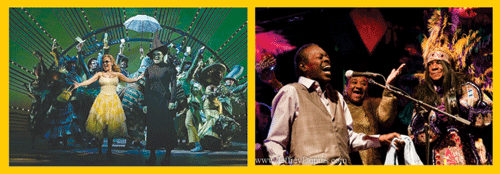One of the more bizarre things about doing business in New Orleans—whether you’re with a non-profit or you’re in it for the dough (oh wait, non-profits are too)—is that local organizations tend to be highly territorial.
I never could understand this mentality, unless you are totally at odds or competitive with an entity that’s involved in a project. It seems to me that it’s much more productive if things are set up in a scenario where everyone wins: the old “win-win” mentality. Working with allies is always better than fending off enemies or trying to outdo competitors.
From a business standpoint, this concept has always worked for me. If our staff deals with an advertiser who puts itself into an adversarial position such that OffBeat is always losing money on a relationship, we will walk away. It’s not worth the hassle of doing business with someone whom you feel is always trying to best you at the negotiation game, or get something at your expense. We’ve always looked at our advertisers as partners. Does anyone really want to be in business with a partner who’s always trying to get over on you? Of course, money is always an important component of a business relationship, and both sides have to compromise. That’s part of the game. In the long run this is the only thing that makes sense for a sustained relationship that feels good to both parties.
I think the mistake that a lot of local organizations make is to be territorial to the point where they become inflexible, and in doing so, they tend to negate the benefits of working in a relationship where compromise will better serve everyone’s interests. But it has to be a compromise where both parties in a relationship feel good: the old win-win.
The reason I got to thinking about this is something that happened last week. My daughter and granddaughter and I had made a date to take in the production of Wicked at the Mahalia Jackson at 8 p.m. They both arrived at the Frenchmen Street HQ at 6 p.m., as we’d decided we wanted to have a light dinner before the show. So we meandered down to Three Muses where we enjoyed drinks, several of their small plates, and Tom McDermott on piano. A very happy time was had by all, but we were done by 7 p.m. and had an hour to kill before the show. So we decided to piddle a bit, and head over the theater.
As we drove past Armstrong Park, the Thursday night concert that’s produced by the People United For Armstrong Park (PUfAP) was in full swing, and frankly, sounded great. So I thought, “Damn, why didn’t we come over here, grab a bite to eat, and listen to music in the Park for a couple of hours before the show?” My bad, especially since I’m totally aware of the Thursday night concerts.
But then it occurred to me: if I knew about the concerts and zoned on thinking about it as an entertainment source prior to attending the theater, I’m sure that the concerts certainly weren’t top of mind for the thousands of people who came in for the Wicked performance. Think about how many more people could have been exposed to “Jazz in The Park,” and Armstrong Park as a pace to recreate. That kind of exposure of the park could go a long way to dispel some of the negativity (read crime) that’s been associated with Armstrong Park in the past.
It seems to me that the PUfAP folk should be working a lot more closely with the management of the Mahalia Jackson theater. Is there some reason why this isn’t happening? I don’t know the answer, but it seems to me to be an opportunity lost for both the theater management and PUfAP too.
Working together for mutual benefit is always preferable to ignoring a potential partner. That’s part of establishing a communal interest, and a real community.





